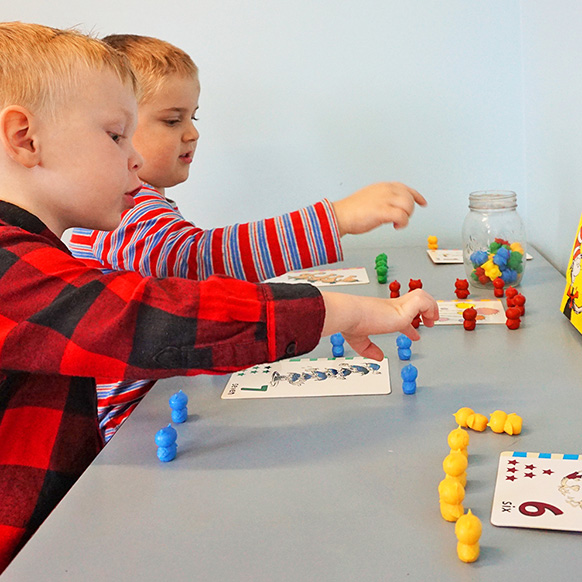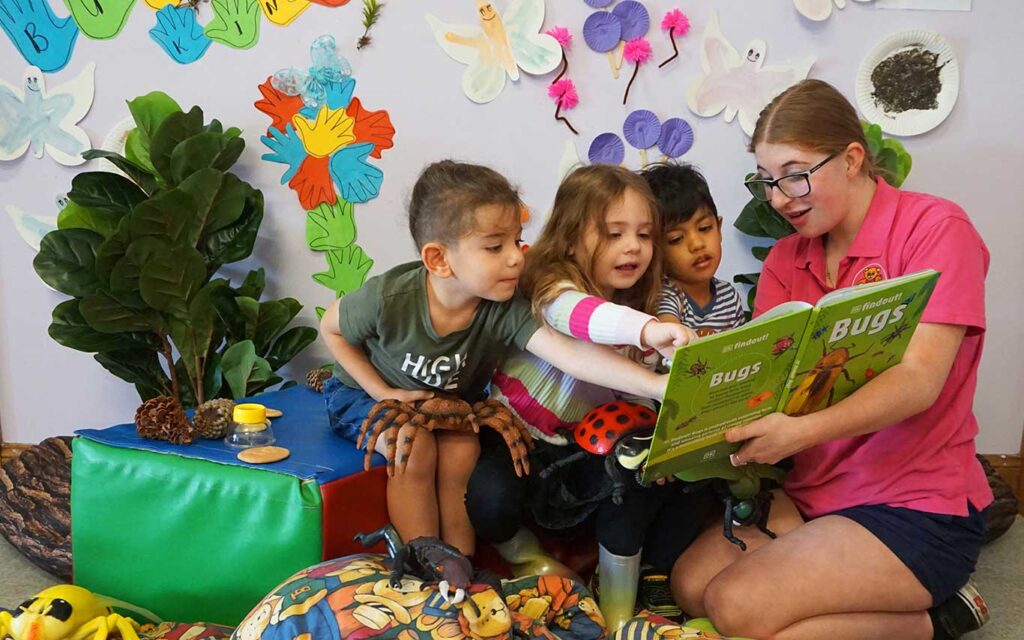
At Clovel Childcare, we are great believers in the idea that stimulating children’s curiosity and enhancing their earliest experiences of the world are fundamental to their growth. By identifying and catering to each child’s favourite activities, we can maximise their engagement, a cornerstone of any educational endeavour.
Sensory play activities are essential as we plan entertaining activities that provide opportunities for a range of crucial early skills and development. This article examines the concept and why it is so powerful and makes some fun recommendations for sensory play ideas at home.

As children grow and develop, their senses and interactions with unique sensory experiences are fundamental to their understanding of the world. Sensory play is any playful activity that stimulates the senses, namely:
We might be able to explain that a lemon tastes sour, but that is an abstract concept if you have no understanding of the word. Once the tip of the tongue touches it, there can be no mistaking the word again, and therein lies the critical importance of sensory play activities.

One of the most critical functions of early sensory experiences is allowing children to investigate things and experiment through fun activities that hold their attention. When we apply the same concept to babies and their earliest stages of development, we see a range of benefits, including:

One of the great benefits of sensory play is that it can be adjusted to suit children of different ages. The youngest learners may delight in the simplest sensory play activities, from the strange noises that toys and other odd new items produce to how a fuzzy bear feels on the skin. The options are endless, and there is much fun to be had in creating sensory play ideas at home to entertain even the youngest children.
It’s hard to overstate the importance of early sensory experiences in our young people’s long-term, rapid development. Rewarding, memorable encounters are the stuff of dreams when setting the perfect learning platform to build upon. Neural pathways are never more flexible than in our earliest years of life, and our future learning can be given the best possible kick-start. When we maximise infant sensory development, a whole raft of long-term benefits are cemented in place, including:
It is impossible to solve any problem without engaging one or more of our senses, and although these are part of our genetic makeup, they can be developed and honed just like any other skill. From fundamental essentials like numeracy and maths to science and technology, the building blocks we help implement early in life reap excellent benefits as the child grows. We can encourage many elements, such as:
Regarding problem-solving skills, infant sensory development plays a crucial role and should be addressed.
We begin life with a natural curiosity that drives our understanding and the way we learn.
As babies, we watch everything, and anything within our grasp usually ends up in our mouths. This is the earliest type of inquisitive behaviour, and it helps stimulate brain development. The more we can encourage our babies and young children, the more they will learn and the faster they will do so. This is one of the main benefits of sensory play for babies and a core tenet of sensory play activities at any age. Rich, colourful environments with various textures, noise-making objects, and other fascinating, engaging items are the perfect way to drive children’s imaginations and enhance their view of the world.

Children who encounter exciting early sensory experiences are often keen to share with their peers and others. This leads to improved sharing, taking turns, and generally well-rounded social skills.

Many children want to communicate their thoughts and feelings about the experience when their senses are aroused. This is the perfect opportunity for their carers to elicit as much as possible and feedback information with keywords and phrases. Change the activity slightly using the same materials, and with enough repetition and engagement, the words are much more likely to be retained and used again.

Some of the most effective sensory play activities require little setup and can be achieved using basic everyday items. Some exciting suggestions include:
Intriguing noises
There is no shortage of children’s toys to stimulate noise recognition and curiosity. You can also create versions using household objects that ring, chime, rattle, and squeak! Look around, and you might find more fascinating sounds than imagined in your home.
Visually interesting bottles
Appropriate bags and bottles filled with all manner of weird and wonderful items can create a superb addition to your sensory play activities. Children will happily shake, poke, and investigate your creations, stimulating their visual and auditory senses.
Textural objects
From a range of fabrics to soft bags filled with small items that shift and behave curiously, the opportunities for investigation and touch stimulation are rife with a bit of imagination.
Mirrors
Endlessly fascinating to many of us throughout our lives, babies and young children are no exception. You can use child-safe mirrors and quirky games to captivate them.

We’d love to hear from you if you want to learn more about Clovel Childcare and our innovative approach to infant sensory development. Our experienced staff are ready to provide all the information you need about our preschool program and everything from our superb meals menu to using Kindyhub, our preferred means of communicating with parents and carers. If you have a moment, why not check out our informative blog? At Clovel Childcare, we take the business of educating our youngest and brightest very seriously, so please contact us today and see what all the fuss is about!

Lyn Connolly is the Founder and Company Director of Clovel Childcare & Early Learning Centres, a family‑owned group of eight centres across Western Sydney established from her first service at Merrylands. Active in early childhood education since 1977, she also serves as President of the Australian Childcare Alliance (ACA) NSW, representing providers in state and federal consultations, media, and public hearings.
Choosing your child’s childcare and early learning centre is one of the biggest decisions you will ever have to make for your child. If you have more questions for us or would like to book a tour of one of our centres, please fill out our form and we’ll be in touch!






Join our Clovel newsletter to keep up to date with the latest news, blogs, tips & advice or follow us on YouTube, Facebook and Instagram.